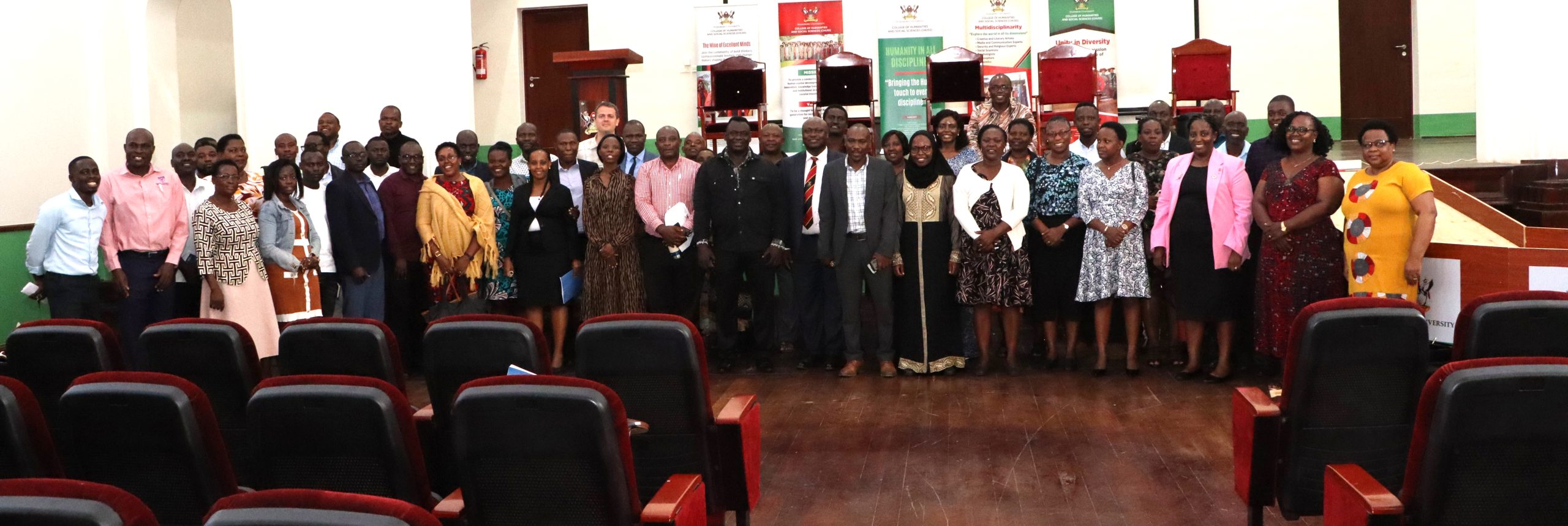Kampala, 15 July 2025 — The Acting Deputy Vice Chancellor for Finance and Administration (DVCFA), Professor Winston Tumps Ireeta, has called on staff at Makerere University to embrace shared accountability, open dialogue, and a culture of continuous mentorship, in a bid to reposition the institution for academic excellence. He was speaking at the close of the CHUSS Town Hall Conversation held at the in the University Main Hall-a forum marked by candid exchanges between academic, administrative, support and college leadership management.
In his address, Prof. Ireeta underscored the importance of each staff member recognizing their role in the image and trajectory of the university. “Makerere University is me and you,” he told the audience. “When the university’s ranking falls, we all fall. When we rise, we all rise. So, what can each of us do from our corner to uplift our university?”
Prof. Ireeta responded to a wide range of concerns raised by staff during the forum, including confusion around the requirements for becoming a Principal Investigator (PI) on research projects. He acknowledged that certain expectations, while obvious to some, were not clearly communicated across all departments. This lack of clarity, he noted, often leads to frustration and misinformation — issues that can only be resolved through open and regular conversation.
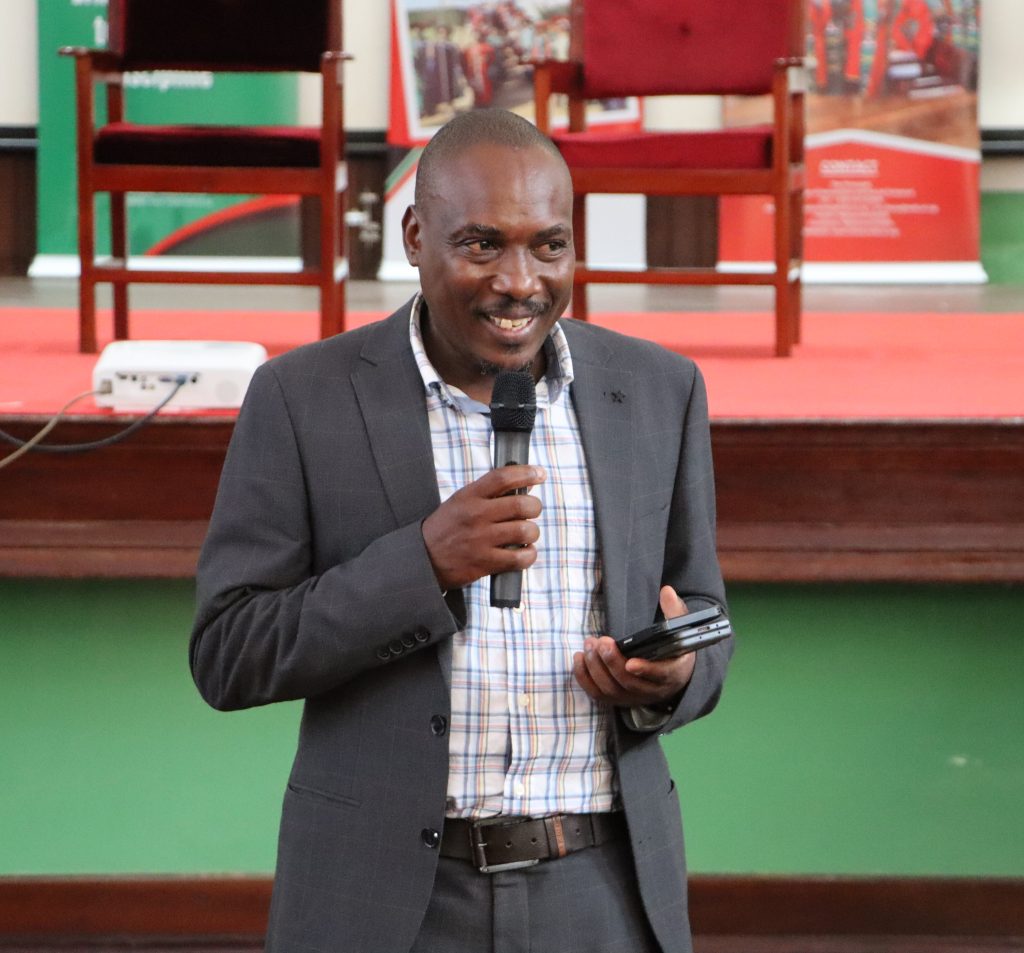
The DVCFA also weighed in on criticism regarding promotion policies, particularly the requirement for candidates to have graduated students at various levels. While some had argued this was burdensome or unfair, Prof. Ireeta emphasized the need to see mentorship as a lifelong academic responsibility rather than a one-time hurdle. He cited the example of his own mentor, who continued to supervise PhD students well into retirement—not for promotion or pay, but out of a deep commitment to passing on knowledge.
Mental health was also a key theme in Prof. Ireeta’s remarks. While addressing concerns over biometric clock-in systems and staff burnout, he shared his own daily schedule—arriving at the office before 6 a.m. and leaving as late as 8 p.m.—to illustrate the pressures many staff endure. He urged staff to view each other, and especially their leaders, as human beings deserving of empathy and mutual understanding.
Turning to recent controversies surrounding the university’s global rankings, Prof. Ireeta addressed how internal conversations, particularly on informal platforms like MUASA WhatsApp groups, had made their way into the media and harmed Makerere’s public image. Without naming individuals, he questioned the motivations behind leaking such information and noted that such actions had far-reaching consequences on morale and institutional credibility.
“Do you think that person loves Makerere with their heart, if what they share damages all of us?” he asked pointedly, urging staff to reflect on the broader impact of their words and actions.
In response to concerns that CHUSS may be under-resourced, Prof. Ireeta clarified that CHUSS occupies the largest share of university space, including lecture halls and offices in CTF-1 and other facilities. He added that CHUSS had benefited more than any other college in the past six months, a sign that management remains committed to its growth and relevance.
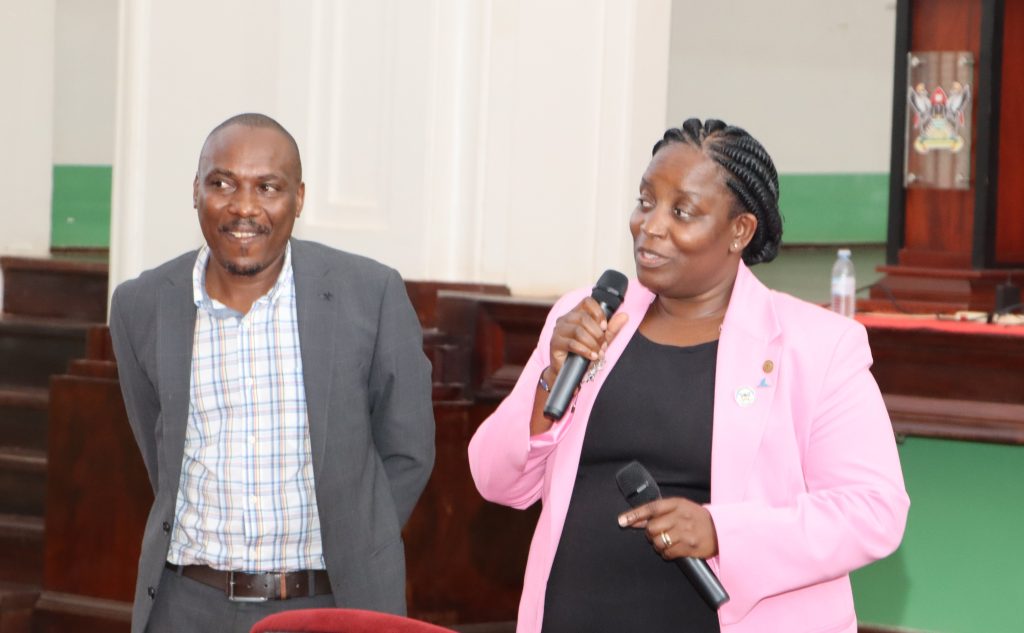
The town hall, which drew participation from across the college, was described by both Prof. Ireeta and Prof. Nkabala as a healthy and constructive space. Both pledged continued support for such engagements and encouraged staff to use university seminar rooms for future academic and collaborative meetings.
The day ended on a note of unity, with CHUSS leadership, facilitators, and participants pledging to carry forward the spirit of open dialogue and institutional pride sparked by the day’s conversations.
Assoc. Prof. Nkabala Calls for Honest Dialogue and Institutional Repositioning with no titles attached
The Principal of the College of Humanities and Social Sciences (CHUSS), Associate Professor Helen Nambalirwa Nkabala, officially opened the CHUSS Town Hall Conversation with a passionate appeal for open, candid, and respectful dialogue aimed at restoring the central role of the humanities and social sciences within Makerere University.
Speaking to an audience of faculty and staff gathered at the University Main Hall, Prof. Nkabala underscored the importance of the day’s event, not as a routine meeting, but as a strategic conversation designed to prompt meaningful reflection and action.
“This is not just any other meeting or a formal workshop,” she said. “It is a conversation — and we are very intentional about calling it that — because it is only through open, honest dialogue that we can respond meaningfully to the challenges we face.”
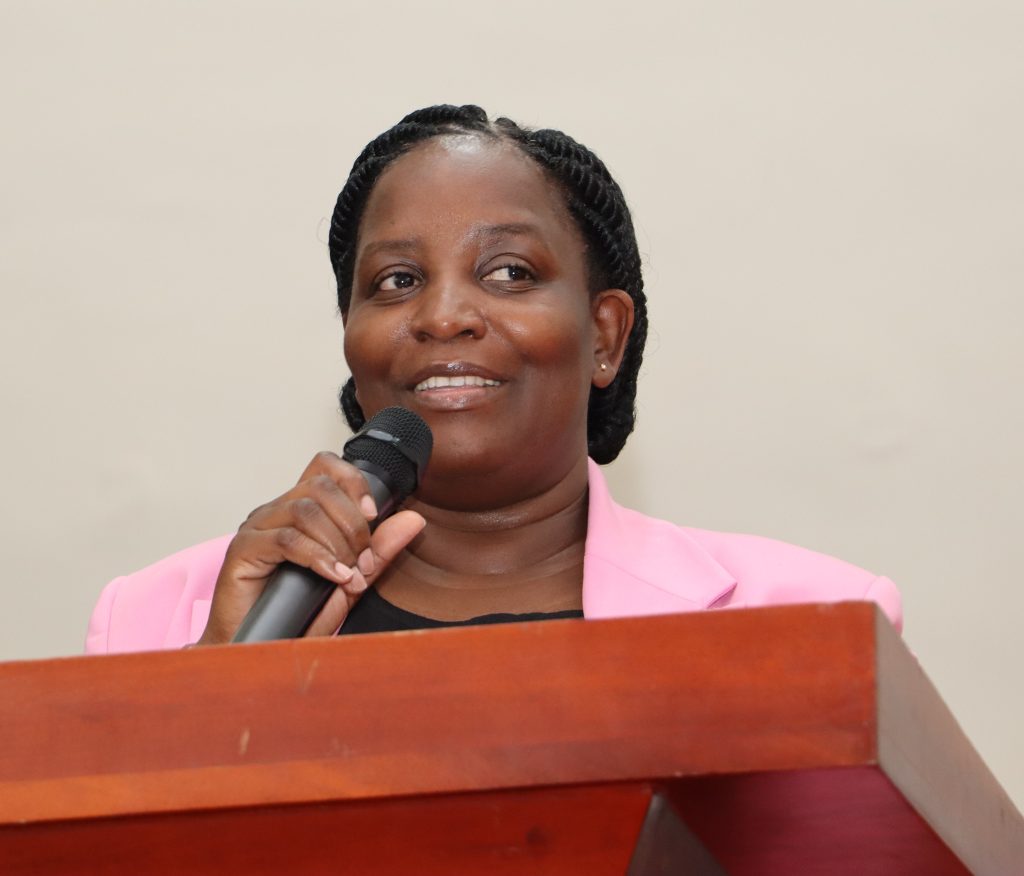
Prof. Nkabala expressed hope that through respectful exchanges, CHUSS would strengthen its internal cohesion and reaffirm its relevance at the heart of Makerere University. She emphasized that while staff in other disciplines such as the sciences may focus on technical innovation in labs and research centers, it is the humanities and social sciences that must provide the critical reflection and direction needed for collective advancement.
“Reputation is a currency,” she remarked. “And that currency, if lost, is very hard to recover. Our strength lies in conversation — not in directives or top-down mandates — but in heart-to-heart engagements.”
She warned that continued relegation of the humanities to the academic periphery not only harms the college but sends echoes of marginalization across Makerere’s vast alumni network. Reasserting CHUSS’s value, she said it is the role of humanities scholars to sit at the center and offer guidance across disciplines — shaping the university’s ethical compass, policy reflection, and social transformation.
During her address, Prof. Nkabala called for renewed collegiality and encouraged staff to focus inward — to “see ourselves as CHUSS,” rather than constantly measuring against other disciplines. She clarified that introspection did not mean shying away from articulating needs and expectations to university management, but rather balancing that with a focus on what the college can do for itself.
The Principal also highlighted that the decision to keep the day’s panel discussions in-house was deliberate, signaling a desire to handle internal matters with the discretion and ownership they deserve.
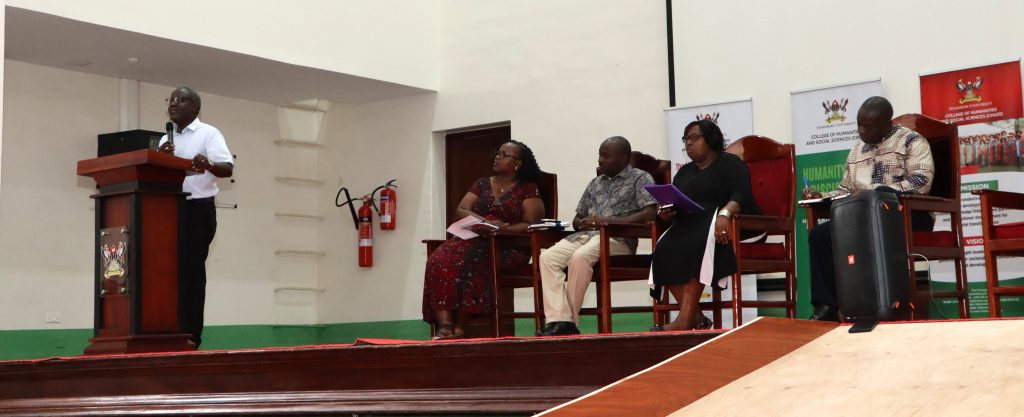
In a moment of collegial celebration, Prof. Nkabala recognized staff from each of CHUSS’s constituent schools and institutes — the School of Languages, Literature, and Communication; Performing Arts and Film; Psychology; Social Sciences; the Institute of Gender and Development Studies; and the Makerere Institute of Social Research (MISR). She described CHUSS as “home,” reminding staff from all units that their contributions matter and are valued.
“We are CHUSS,” she affirmed. “Let us celebrate one another, and let’s keep coming home.”
She concluded by inviting all present to participate without titles or hierarchy, reiterating a commitment made with the Deputy Principal that the conversation would be peer-to-peer, staff-to-staff.
“We are not dressing our titles today. We are speaking as colleagues, as members of one college,” she said.
The CHUSS Town Hall Conversation, held under the theme of reflection, collaboration, and institutional repositioning, marks a deliberate move by college leadership to foster transparency, trust, and shared ownership in tackling the college’s challenges and opportunities.
Campus FM Regains its Broadcasting License
The closing ceremony also included significant updates from Professor Helen Nkabala, who announced the launch of Campus FM—a new university radio station housed within CHUSS facilities. The station, she said, had received its broadcasting license and space at CTF with the support of the DVCFA and university management.
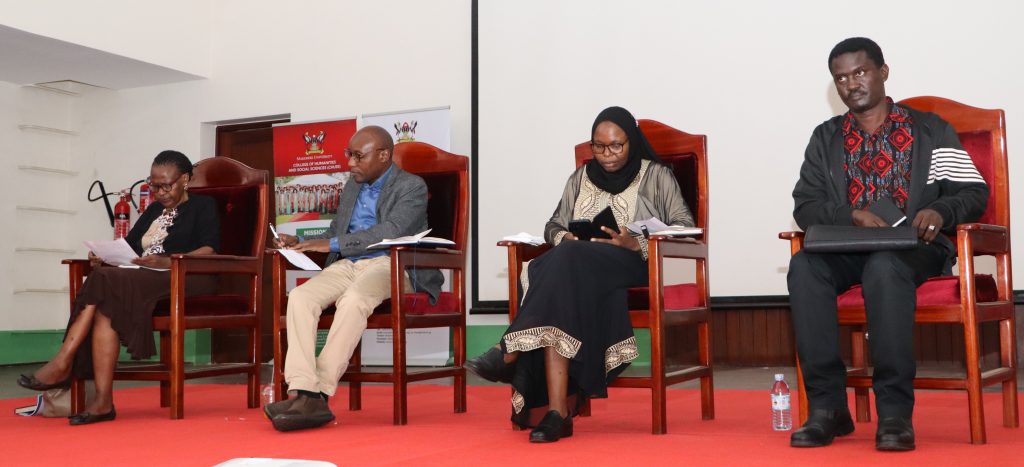
“This is strategic communication in action,” she said. “We are lighting the candle from our corner.”
CHUSS asked to propose revisions to existing policies
Prof. Nkabala commended staff for their active participation throughout the day and noted that the university’s top management had extended an invitation to CHUSS to propose revisions to existing policies. She urged all staff to take part in these deliberations at departmental and school levels so that their voices could be reflected in the college’s formal submissions.
She closed by calling on staff to take care of themselves and their colleagues. With three weeks remaining before the semester begins, she encouraged those without urgent responsibilities to take short breaks and return refreshed. “If you’re not very busy, take leave and rest before the semester starts,” she said. “Let’s begin well.”
Prof. Awich Rallies CHUSS Staff to Speak Freely and Reboot for the Academic Year
The Deputy Principal of the College of Humanities and Social Sciences (CHUSS), Associate Professor Eric Awich Ochen called for honest, open, and fearless dialogue to address the pressing academic, administrative, and social issues affecting the college.
Speaking during the opening session Prof. Awich emphasized the importance of the forum as a safe space for staff to share candidly, reflect critically, and realign themselves with the broader goals of the university.
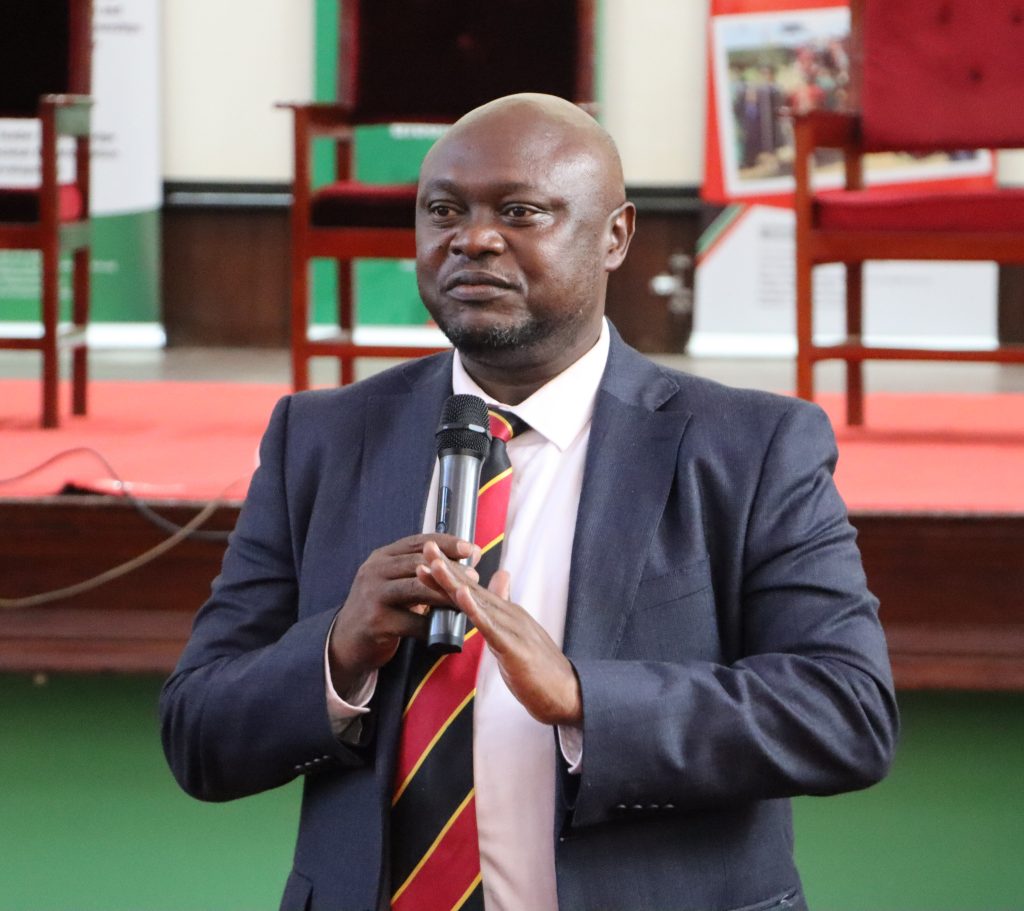
“Be free, colleagues. Nothing you are going to say here is going to be used against you anywhere,” he assured attendees. “This is our space to share, learn, unlearn, and relearn.”
Awich’s remarks set the tone for the day-long conversation, which brought together academic and administrative staff across CHUSS to discuss challenges ranging from digital systems, work environment concerns, mental health, and the recent dip in Makerere’s global university rankings.
Referring to the university’s decline in rank, Prof. Awich urged staff not only to reflect but to consider their role in turning the situation around. “We’ve seen the headlines. Yes, our ranking has dropped — but what does this mean, and how do we contribute to reversing that trend?” he posed.
The Deputy Principal listed a number of practical issues on the agenda, including concerns over biometric attendance systems, the Academic Management Information System (ACMIS), and challenges with the electronic human resource platform. He also acknowledged persistent issues with infrastructure and collegial interactions that affect daily operations.
Crucially, Prof. Awich underscored the importance of mental health and urged colleagues to engage actively in sessions led by university experts during the day. “How do we maintain good mental health while working in this university environment?” he asked, emphasizing the need for individual and collective well-being.
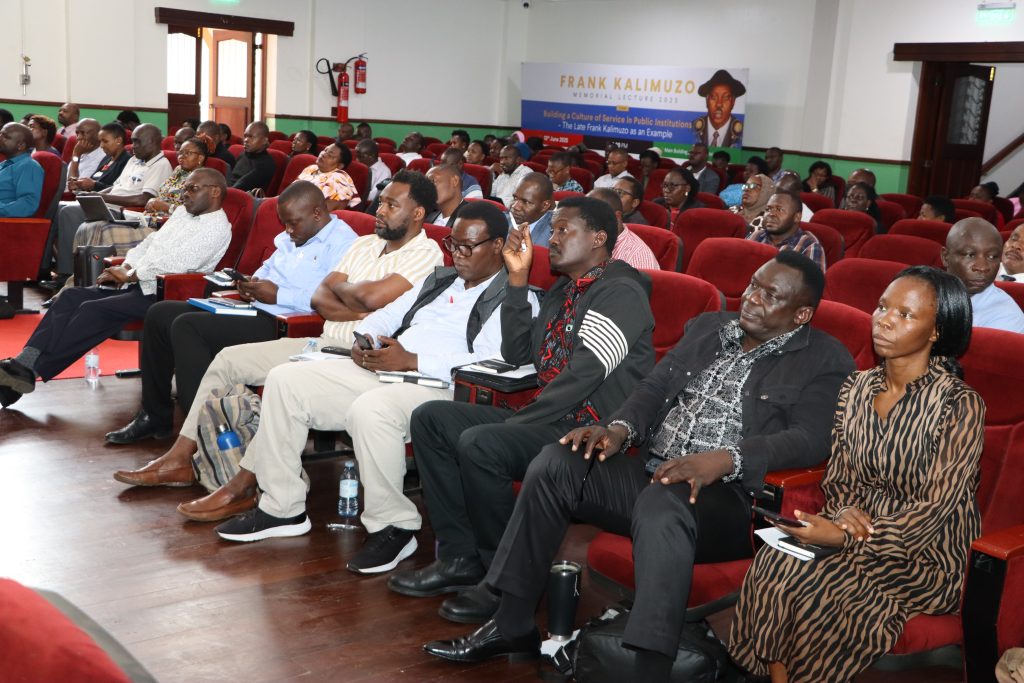
In his address, he reflected deeply on mentorship and institutional memory, noting that senior academic staff have a responsibility to guide and grow the next generation of scholars. He emphasized the value of research groups recently formed within the college and encouraged senior staff to take leadership roles in resource mobilization and academic collaboration.
“Mentorship is key,” he said. “We must work to revive a system where we grow our own — through graduate fellowships, teaching assistantships, and structured guidance.”
About the CHUSS Town Hall Conversation
The College of Humanities and Social Sciences (CHUSS) held the inaugural Staff Town Hall Meeting bringing together academic and administrative staff for an open conversation on pressing institutional and professional concerns.
Held at Makerere University’s Main Hall, the meeting served as a platform for dialogue, learning, and collective reflection — with a focus on improving work environments, understanding digital systems, boosting research productivity, and enhancing staff well-being.
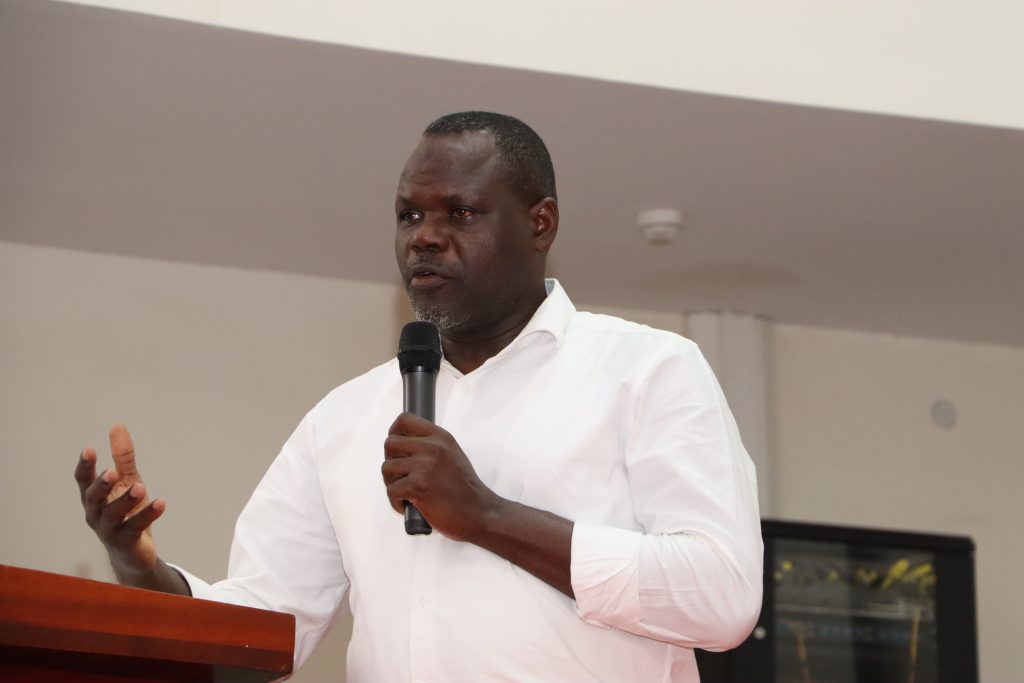
A key highlight of the meeting was a presentation on digital platforms used across the university. The Director of DICTS represented by Mr. Yunus Musisi clarified how systems like ACMIS, EHRMS, RIMS, the e-Timetable, and the biometric attendance tracker interact and impact daily operations. The session aimed to address confusion and improve system navigation by staff.
Another panel tackled the CHUSS work environment, both at micro and macro levels. Speakers included Mr. Sunday Seezi, Dr. Gerald Walulya, Dr. Ritah Nakanjako, and Dr. Charlotte Karungi Mafumbo, who examined issues of collegiality, office space, administrative workflows, and the culture of communication within the college.
On the academic front, Prof. Sylvia Antonia Nakimera Nanyonga Tamusuza from GAMSU guided participants through a conversation on grants and resource mobilization, sharing practical tips on how staff can enhance their research output through successful grant applications.
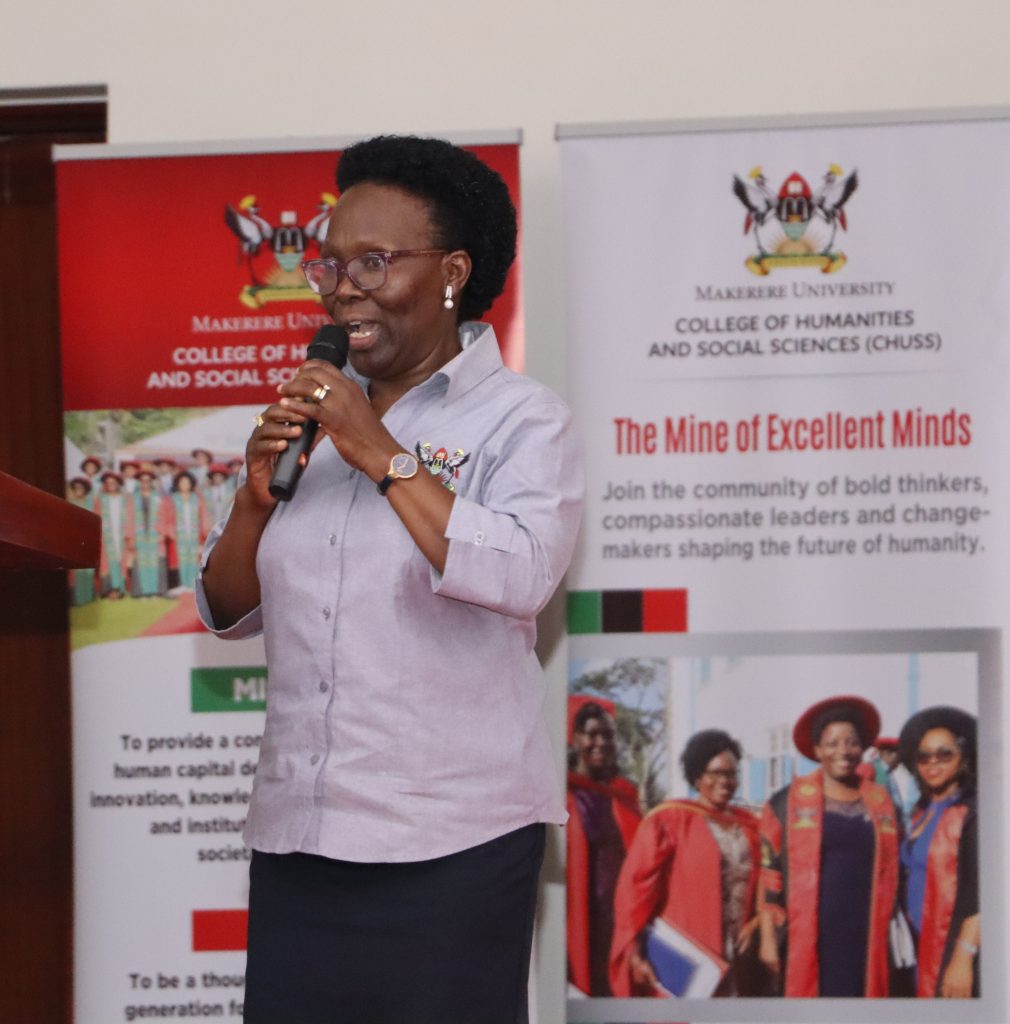
With Makerere recently seeing a slip in global university rankings, a timely discussion was led by Prof. Stella Neema, Dr. Aisha Nakiwala, Dr. Spire Sentongo, and Prof. Eddy Walakira. The panel examined how CHUSS can play a role in reversing the decline by improving teaching, research, student engagement, and institutional reputation.
The day also featured an important session on mental health, facilitated by Dr. Samuel Ouma, who urged staff to prioritize emotional and psychological well-being amid academic, administrative and family demands.
Throughout the conversation, staff were encouraged to take ownership of their professional spaces and act collaboratively in addressing challenges. The town hall marked a shift toward more participatory leadership and transparent communication within the college.
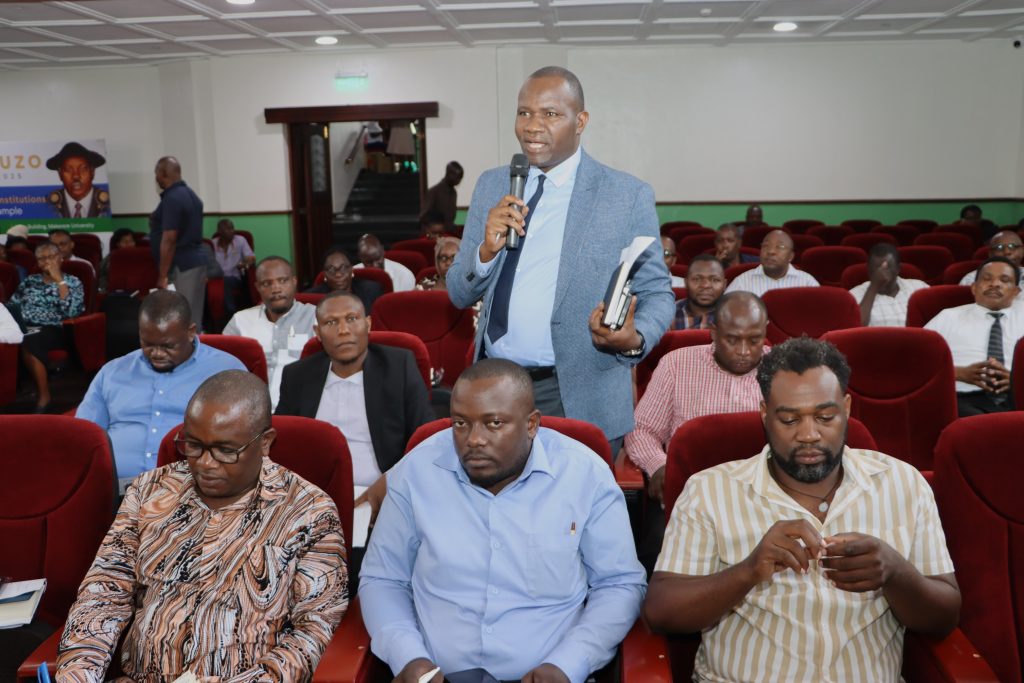
“This is not just a meeting — it is a conversation. And from this conversation, we shape our future,” said CHUSS Principal Assoc. Prof. Helen Nkabala, affirming the college’s commitment to open dialogue, staff empowerment and being the voice in top management meeting over issues raised.
By Jane Anyango
Principal Communication Officer, CHUSS

